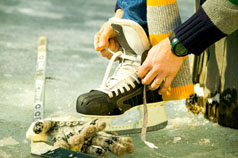Change Your Clocks - CHECK Your Smoke Alarms This Weekend
It's that time of year again when we "Spring Forward" and
change clocks (unless your clocks do it automatically)! Here are our Top Eight
Tips to remember when it comes to smoke alarms and fire safety this weekend:
1.
It is indisputable
that smoke alarms save lives. Smoke alarms are the best and least expensive way
to provide an early warning system to alert you and your family to a potential
fire emergency. Smoke alarms are designed to detect a fire in its early stages
and alert people so they have time to safely escape.
2.
Smoke alarms should
be installed in every bedroom, outside each sleeping area and on every level of
the home.
3.
For the best
protection, smoke alarms should be interconnected. What does that mean? When
one sounds they all sound alerting you to an emergency early on and giving you
critical time to escape. New construction requirements have included hard-
wired smoke alarms with battery back-ups since the 1980's.
4.
Nothing lasts
forever - including smoke alarms. Smoke alarms become less reliable with time,
primarily due to aging of their electronic components making them more
susceptible to nuisance false alarms. Replace entire smoke alarm units every 10
years or sooner if they don't respond properly when tested. Why? The sensor
wears out and may not activate in an emergency putting your family at risk.
Always read the manufacturer’s recommendations as some models recommend
replacement every 5-7 years.
5.
Never (ever) paint
over a smoke alarm. It will affect the operation of the smoke alarm,
potentially disabling it.
6.
Test your alarms
once a month by pressing the test button.
7.
Clean your smoke
alarm once a month when you test it. Smoke alarms get clogged with dust
build-up which may affect performance.
8.
If your detector
“chirps” it may be time to change the back-up battery in your hard-wired alarm.
Since 2019, New Jersey law has required all battery-only smoke alarms
(permitted in homes built before 1977) to have a sealed, 10-year long-life
battery in the unit so any "chirping" in these units is likely
signaling that you need to replace the smoke alarm with a new one.
Today's home safety and security technology has evolved beyond
smoke and carbon monoxide alarms. Many families rely on household devices
connected to the internet or smartphones to enhance safety and security. New
technology can even notify you when the alarm is activated or if the battery is
low. Take time this weekend to ensure your family has a fire safety plan.
Practice it with a Home Fire Drill to ensure everyone knows what to do in an
emergency.


